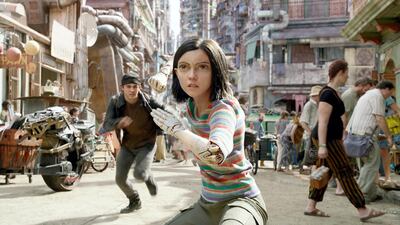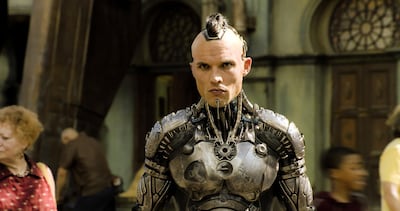Last week we posed the question: Could Alita: Battle Angel be the film to take manga mainstream? This week, we can say that, although nothing is certain in the world of cinema box offices, it stands the best chance of any film to date.
If I'm honest, I entered the cinema with a degree of trepidation. After all, Hollywood doesn't have the greatest reputation for adapting foreign properties, and Japanese properties have traditionally fared particularly badly. Death Note and The Ring certainly gained little from their Hollywood reboots, while Spike Lee's take on Oldboy (originally a Japanese manga, although the best-known movie version is Korean) is surely something of a career low for the accomplished director.
Add to this the fact that I am not a big fan of some of James Cameron's more recent work – I found the motion capture on Avatar gimmicky and a little irritating, and his high-tech techniques are again in play here, albeit with Robert Rodriguez in the director's chair – and I wasn't sure what to expect from Alita.
Thankfully, my concern was misplaced. The director-producer pairing of Rodriguez and Cameron is a winning one, with Rodriguez's B-movie aesthetic tempering the more ostentatious elements of Cameron's love of the epic, and the former's love of Machete-style ultra violence finding a whole new visual level, thanks to the tech wizardry available for this $200 million (Dh734.6m) blockbuster.
Alita is a cyborg. Or rather, at the start of the movie, she's the dismembered head and upper torso of a cyborg that Christoph Waltz's cyber surgeon Dr Dyson Ido finds on a rubbish dump. Ido lovingly builds Alita a new body and nurses her back to health, but the human brain in her head has no memory of who she is or where she is from. Fairly quickly, Alita discovers she has an unexplained intimate knowledge of the martial art Panzer Kunst, and her journey of discovery begins, as does ours.
The Earth has been devastated by war with the Martian colonies, and of the many floating cities that used to exist, only utopian paradise Zalem remains. But unfortunately for Alita, she doesn't live there. She lives in Iron City, the slum underneath the floating paradise, alongside refugees from the other destroyed floating cities.
Despite her slight frame, Alita is a fierce warrior, and her mysterious martial arts skills come in handy for two vital plot points. Firstly, she is able to register as a hunter-warrior, a futuristic bounty hunter, to earn her keep. Secondly, her talents make her an excellent motorball player – an ultra-violent cross between roller derby and Ultimate Fighting Championship. Motorball is huge in Iron City, and becoming the champion is the only way of gaining access to Zalem. However, Alita is unaware that Nova, the shadowy chief of Zalem, knows exactly who she is, and will stop at nothing to capture her for her very special powers.
The story is a little cluttered at times, especially with a peripheral love interest that serves mainly to demonstrate that Keean Johnson, who plays Hugo, is not romantic lead material, but really this is a film about the visuals and the violence.
Iron City is a visual treat comparable to the stunning Los Angeles of Blade Runner 2049, and the film must surely be headed for an Oscar nomination for visual effects next year. Rodriguez gets to revisit his renowned Desperado bar-room brawl, but with a host of cyborg bounty hunters, all cyberpunk outfits and artificial limbs flying. The motorball scenes are incredible, fast-paced sequences of violence that could warrant a sports movie of their own, and the motion capture does not jar at all – even Alita's freakishly large eyes, a nod to the original comics, seem normal after the first few minutes.
Alita is a truly immersive experience, drawing the viewer into this masterfully crafted world and dragging them though it at blistering pace. There are slower moments, such as some touching scenes as the father/daughter relationship between Ido and Alita develops, but you are rarely given more than a couple of minutes to breathe before the next all-action set-piece. Indeed, the two-hour-plus run time flashes by in an instant, and it's such a magnificent sensory overload that even the shameless "set-up-the-sequel" ending can be forgiven.
When it inevitably comes, I’ll be first in the queue.


